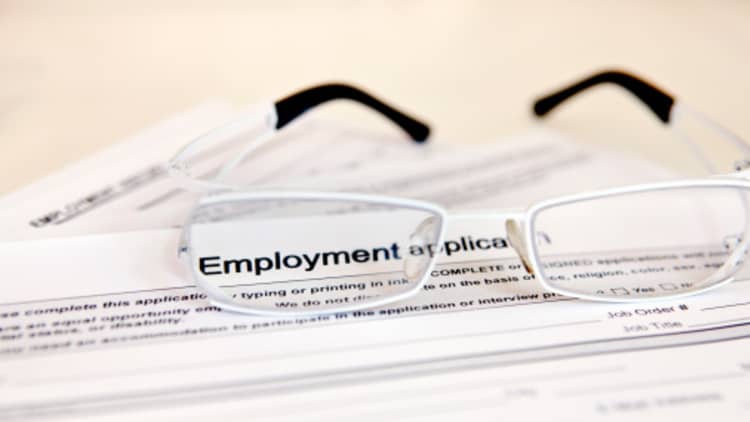
The U.S. jobs market startled everyone last month with its blockbuster February report of 313,000 new jobs, compared with the 205,000 expected.
But the growing job market may soon be cooling down, said Robert Brusca, founder and chief economist at Fact & Opinion Economics, a consulting firm.
"I'm not that optimistic," the Wall Street veteran, told CNBC's "Power Lunch" on Thursday, less than 24 hours before the March report is set to be released by the U.S. Labor Department.
While Wall Street is anticipating around 190,000 new jobs for March — about half of February's numbers, but still steady — Brusca, who was a divisional research chief at the New York Fed, expects closer to 140,000.
"February is a short month," he said, explaining the differences in the two months. "It has a lot of holidays in it. There are big seasonal adjustment factors."
Still, the U.S. unemployment rate fell to a 17-year low in February and the number of Americans receiving unemployment benefits has dropped to its lowest level since 1973. The Federal Reserve is forecasting an unemployment rate of 3.8 by the end of the year.
Small businesses are worried about Friday's jobs numbers as well, said Larry Glazer, co-founder and managing partner of Mayflower Advisors, an investment firm.
"They're not worried about the economy," Glazer said Thursday on "Closing Bell." "They're worried about finding skilled labor right now and that's pushing wages up."
While Brusca expects the unemployment rate to fall even further in Friday's report — to 4.0 percent — he doesn't think this tells the whole story.
"The thing about the job market, it's not job growth, not just raw job growth," said Brusca. "We've been producing all of these low-skill jobs. You hire a CEO, you hire a janitor, you get the same impact on the unemployment rate."
The economy, Brusca said, is not as strong as people think, and cited things like retail sales that continue to fall and a weak U.S. dollar as examples.
"Everyone is looking at the tax cuts or looking at the future, what they expect," he said. "But the consumer has been stimulated several times in this cycle and it came up pretty flat. ... I think we should be careful to think we're in a take-off mode. I don't think we know."
Meanwhile, average hourly earnings are expected to increase by only 2 cents, compared with the 4 cents in February.
"The only time you see large wage growth in the U.S. has been at the beginning of the year with the adjustment of the federal minimum wage," David Bailin, global head of investments at Citi Private Bank, said on "Power Lunch."
"Otherwise it has been relatively benign," he said.


